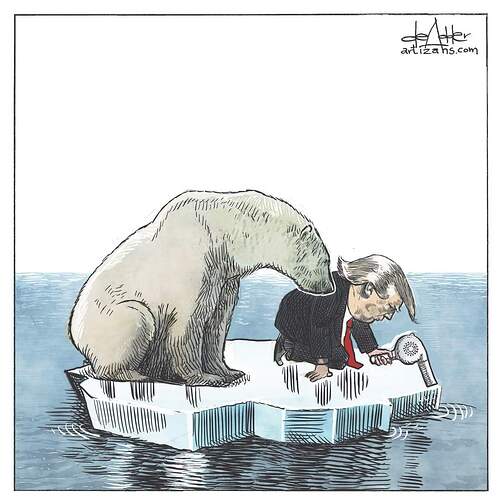A smidge of good news
Side effect of the Ukraine war. Germany in particular has made dramatic investments in energy efficiency and renewable generation.
Really only goes to show, most things are simply a matter of political will/desire.
This was also tied to the closure of the final nuclear plants, which I thought was a rather bad idea, however the effect seems to be the opposite of what I thought.
At the moment, they are looking at putting some wind turbines in the forest where we live. There is opposition from the usual NIMBYs but I think it is a great idea - as long as they aren’t compromising the forestry.
How much of that was related to the war in Ukraine? I thought it odd timing for the closures given the spike in energy prices at the time and had thought it must have had something in part to do with having to buy fuel for the reactors from Russia or something (I havent a clue whether they do or not) - otherwise why not extend their life for a year or two until gas prices had fallen back again?
Very little, as the plan to close the reactors was made after the Fukushima disaster.
There was a slight delay to close the last 3 due to the Ukraine situation, but that was merely over the winter period of 2022/23. They had a big gathering to mark the closing of the Emsland plant at the hotel that my son works at. Apparently, Grünen politicians are the best tippers!
I suspect that a completely renewable energy policy needs a different model. Essentially, having massive over-capacity with sufficient disgressional consumption to keep the producers operational and profitable.
I’m wondering if it will end up being more decentralised to perhaps a per-household generation basis with individual buildings and localised district networks e.g. by solar panels for the former and wind power for the latter…
I think it will actually be more the other way - using the grid but having places that can use excess generation on an as-needs basis. This was the thinking behind smart meters in the first place.
I would imagine electric cars are a good use for that but we have a few projects locally that are using excess capacity for hydrogen production. One is a BP plant (which has something to do with Porsche) and the other is RWE.
The hydrogen is more for industrial use rather than energy. Still early days, but I can see that will fill a gap. The main thing is that it keeps wind and solar in constant use.
One report I heard said this was one year’s worth of rain in 9 hours. My brain cannot process that
Nuts. As usual the conspiracy theorists have jumped in and quoted 1957 as an example that this wasn’t some kind of anomaly.
The rain then occurred over 2-3 weeks. This time it happened in a matter of hours.
Read something about Spain demolishing/removing dams due to unprofitable hydro electric generation.
I think that needs a whole load of extra info.
Why?
Plenty of articles out there highlighting and dismissing dam removal as being a contributory factor to the flooding.
Either way it’s such a heartbreaking situation.
Read somewhere that it could have been much worse if it wasn’t for a Roman damn that still works after all this time and stood the test of time and whatever the weather has thrown at it…
Other than that what have the Romans ever done for us ?
I saw this article regarding disinformation about the flooding.
This is one of the biggest problems with the modern world: social media allows disinformation (and misinformation) to spread unchecked and at unprecedented speeds; gullible idiots believe the first thing they see and - voila! - lies become the truth.
Short of closing down all forms of social media, which ain’t gonna happen, this is the world in which we now live.
As I said, there are articles claiming and dismissing dam removal having any contribution to the flooding.
Agree about social media influence, but in too many cases, the real truth often lies somewhere in the middle.
Sadly, too many people dont want to be in the middle, they want to stick to their chosen extreme.
Indeed, the truth often lies somewhere in between the two presented extremes.
However, there is a world of difference between an entrenched view based upon established facts and one based entirely upon nebulous hearsay.
